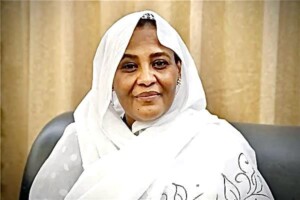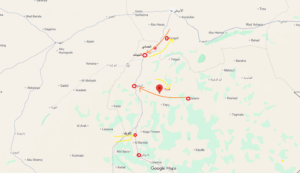Sudan teachers accuse finance ministry of salary U-turn
TThe Sudanese Teachers Committee accused the Federal Ministry of Finance of reneging the specifics of the financial reimbursement arrangement agreed upon in April, according to a statement made by the committee yesterday.
 Nuba children in a community school in a poor suburb of Omdurman, February 2020 (RD)
Nuba children in a community school in a poor suburb of Omdurman, February 2020 (RD)
The Sudanese Teachers Committee accused the Federal Ministry of Finance of reneging the specifics of the financial reimbursement arrangement agreed upon in April, according to a statement made by the committee yesterday.
The committee stated that the demands which failed to be implemented were, “the proposal in unifying the national salary structure under the federal government, the payment of salary discrepancies, increasing bonuses, and modifying expense allowances”.
Earlier this year, the teachers committee organised a nationwide comprehensive strike in protest of not receiving their full financial dues, such as back-payments that were owed to them as far back as 2020.
In April, their strike efforts led to a meeting with Sudan’s chairman of the Transitional Sovereignty Council and Commander of the Sudan Armed Forces (SAF), Lt Gen Abdelfattah El Burhan, in order to review the committee’s unmet demands.
The agreed upon pledges by the Ministry of Finance in the meeting concerned the salaries and shortfall in payments, according to the full outlined structure, as well as disbursing an Eid al Fitr grant.
The teaching delegation also asked El Burhan to abolish his recent decisions that impacted teachers, and to ensure that teachers would not be punished for “exercising their rightful right to strike”.
‘School fees rise’
The Ministry of Education in White Nile state faced criticism after raising tuition fees in schools to SDG30,000.
Abdallah El Sadig, member of the Sudanese Teachers Committee in the state, told Radio Dabanga, the “fees are too high for families in this economy”.
He explained that the imposed price-hike is being used to supplement the lack of income for school administrators, and not used in “running the school or providing much-needed school equipment”.
El Sadig pointed out that White Nile state Labour Committee stated that these fees should be reduced to SDG7,000.
Save the Children
Save the Children reported that nearly seven million children in Sudan are not going to school due to the damage caused by heavy rainfall, which affected nearly 600 schools.
In a report published by the organisation, they show that Sudan is second in the top five countries at ‘extreme risk’, according to the ‘2022 Risk to Education Index’.
The Save the Children index uses nine risk indicators to classify which country is most at risk. The indicators include vulnerability to climate change, access to education in humanitarian crises, and youth unemployment.











 and then
and then